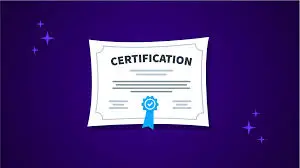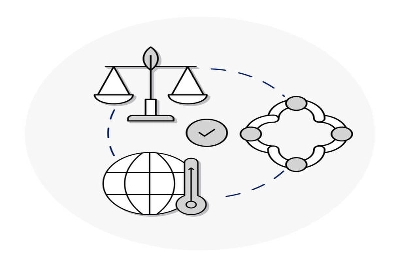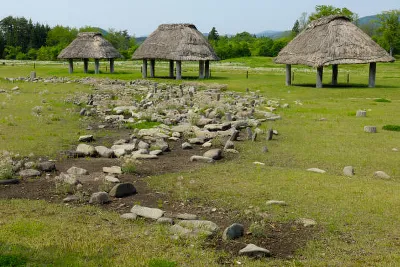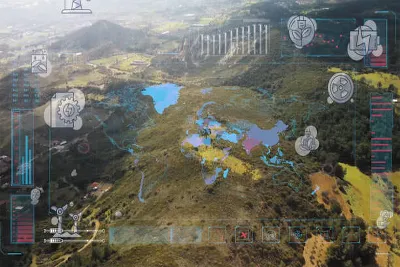Course Overview
This course provides comprehensive training in understanding, documenting, and integrating customary law and traditional governance models into contemporary natural resource management and community development. Participants will learn to recognize the value of indigenous knowledge systems, facilitate dialogue between traditional and formal governance structures, and develop frameworks for legal pluralism that respect cultural heritage while promoting sustainable development. The course emphasizes practical approaches for conflict resolution, resource allocation, and community-led governance in diverse cultural contexts.
Duration
5 Days
Target Audience
-
Traditional Leaders and Elders
-
Community Development Practitioners
-
Natural Resource Managers
-
Government Officials working with indigenous communities
-
NGO Staff involved in community governance projects
-
Legal Professionals specializing in indigenous rights
-
Researchers and Academics in anthropology and governance
Personal Impact
-
Deepen understanding of customary law systems and their applications
-
Develop skills in documenting and analyzing traditional governance models
-
Enhance ability to mediate between traditional and formal governance systems
-
Learn participatory methods for community governance strengthening
-
Improve cultural competency and ethical engagement practices
Organizational Impact
-
Strengthen community engagement and partnership building
-
Enhance sustainability of development projects through cultural integration
-
Improve conflict resolution mechanisms in community projects
-
Support legal recognition of customary rights and governance
-
Foster more inclusive and effective governance structures
Course Outline
Course Objectives
By the end of the course, participants will be able to:
-
Analyze customary law systems and traditional governance structures
-
Document indigenous knowledge and governance practices ethically
-
Facilitate dialogue between traditional and formal governance systems
-
Develop integrated governance models for natural resource management
-
Design community-based conflict resolution mechanisms
Course Modules
Course Modules
Module 1: Foundations of Customary Law and Traditional Governance
-
Introduction to legal pluralism and governance diversity
-
Historical development of customary legal systems
-
Key principles and characteristics of traditional governance
-
Cultural variations in governance models across regions
-
Case Study: Successful traditional governance systems in practice
Module 2: Documentation and Analysis of Customary Systems
-
Ethical approaches to documenting traditional knowledge
-
Participatory research methods with indigenous communities
-
Analyzing governance structures and decision-making processes
-
Mapping traditional resource management systems
-
Practical Exercise: Developing a documentation protocol
Module 3: Integration with Formal Governance Systems
-
Legal frameworks for recognizing customary law
-
Models for integrating traditional and formal governance
-
Conflict resolution between legal systems
-
Building collaborative governance institutions
-
Hands-on: Designing integrated governance frameworks
Module 4: Natural Resource Management Applications
-
Customary approaches to land and water governance
-
Traditional ecological knowledge in resource management
-
Community-based conservation models
-
Benefit-sharing mechanisms and equity considerations
-
Practical Exercise: Developing co-management plans
Module 5: Conflict Resolution and Governance Strengthening
-
Traditional conflict resolution mechanisms
-
Adapting traditional systems to contemporary challenges
-
Capacity building for traditional governance institutions
-
Monitoring and evaluation of integrated governance models
-
Group Project: Designing a community governance strengthening program
-
Course review, feedback, and certification
Related Courses
Course Administration Details
Methodology
These instructor-led training sessions are delivered using a blended learning approach and include presentations, guided practical exercises, web-based tutorials, and group work. Our facilitators are seasoned industry experts with years of experience as professionals and trainers in these fields. All facilitation and course materials are offered in English. Participants should be reasonably proficient in the language.
Accreditation
Upon successful completion of this training, participants will be issued an Indepth Research Institute (IRES) certificate certified by the National Industrial Training Authority (NITA).
Training Venue
The training will be held at IRES Training Centre. The course fee covers the course tuition, training materials, two break refreshments, and lunch. All participants will additionally cater to their travel expenses, visa application, insurance, and other personal expenses.
Accommodation and Airport Transfer
Accommodation and Airport Transfer are arranged upon request. For reservations contact the Training Officer.
Tailor-Made
This training can also be customized to suit the needs of your institution upon request. You can have it delivered in our IRES Training Centre or at a convenient location. For further inquiries, please contact us on:
Payment
Payment should be transferred to the IRES account through a bank on or before the start of the course. Send proof of payment to outreach@indepthresearch.org
Click here to register for this course.
Register NowCustomized Schedule is available for all courses irrespective of dates on the Calendar. Please get in touch with us for details.
Customize AttendanceDo you need more information on our courses? Talk to us.

















